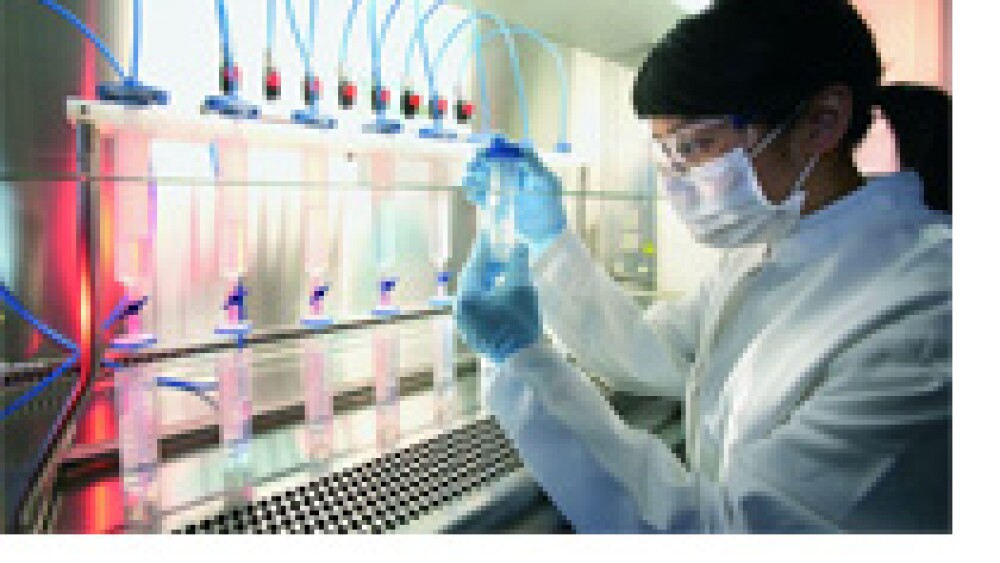February 22, 2016
By Mark Terry, BioSpace.com Breaking News Staff
Sometimes called a “binary event,” the biotech industry tends to deal with these all-or-nothing business events more than other industries. Analysts recently pointed out three biotech companies facing win-or-lose scenarios this year.
Los Angeles-based Puma Biotechnology is developing neratinib for the treatment of breast cancer. The drug, PB272, is an irreversible tyrosine kinase inhibitor (TKI) that acts by blocking signal transduction through the epidermal growth factor receptors, or EGFRs, HER1, HER2 and HER4. It is being tested in several clinical trials as a neoadjuvant therapy in patients with HER2+ breast cancer and in patients with metastatic HER2+ breast cancer.
Although a study recently published in The Lancet Oncology hit its endpoint with a 33 percent reduction of risk of invasive disease recurrence or death when compared to placebo, there are some concerns about the drug’s side effects. Almost 40 percent of the participants experienced grade 3 or higher diarrhea. That has some analysts questioning whether patients would remain compliant with the drug if it got the nod from the U.S. Food and Drug Administration (FDA).
The company plans to study using Imodium with neratinib, and interim data indicates that it reduces the grade 3 diarrhea by almost 20 percent. Writing for The Motley Fool, Todd Campbell wrote, “Overall, given that the improvement in efficacy offered by neratinib is arguably small, the Imodium trial is still ongoing, and the market opportunity in breast cancer is conceivably north of $1 billion annually, Puma Biotechnology is one all-or-nothing biotech company I’m watching like a hawk in 2016.”
Also writing for The Motley Fool, Brian Feroldi chose San Diego-based Acadia Pharmaceuticals . The company’s future is pretty much completely dependent on its lead compound, Luplazid, which is being evaluated to treat Parkinson’s Disease Psychosis (PDP). Feroldi also chose Acadia in an earlier article as a promising bet.
On Nov. 2, 2015, Acadia announced that its New Drug Application (NDA) for Nuplazid had been accepted for review and received Priority Review status. It has also been granted Breakthrough Therapy designation.
The drug is a new class of non-dopaminergic antipsychotic drugs. It acts as a selective serotonin inverse agonist (SSIA), and targets 5-HT2A receptors. It showed positive results in Phase III trials, and also improved patients’ sleep cycles. It is also being evaluated for the treatment of Alzheimer’s Disease Psychosis and Schizophrenia. There aren’t any competitors and analysts are predicting that if approved, peak sales could hit $2 billion.
An advisory committee meeting of the FDA is scheduled for March 29, and a target PDUFA decision date has been set for May 1.
“Acadia Pharmaceuticals’ stock isn’t for the faint of hear—nearly all of its market value is riding on the success of Nuplazid,” writes Feroldi. “If the FDA gives the drug the greenlight, it’s likely Acadia’s stock will soar, but if the FDA decides to reject the drug, the company’s stock will be crushed.”
And Sean Williams, writing in The Motley Fool, chose Menlo Park, Calif.-based Geron Corporation . Geron has a single drug, Imetelstat, in its pipeline. It is being evaluated as a potential treatment for a rare bone marrow cancer, myelofibrosis, as well as myelodysplastic syndromes and essential thrombocythemia.
Geron has partnered with Johnson & Johnson based on the drug’s potential for myelofibrosis. The Phase II/III clinical trial began on Jan. 14 in patients with myelodysplastic syndromes, which is the second study being conducted with the drug by Janssen Research & Development, a J&J company.
At the moment, there’s only a single drug approved by the FDA for myelofibrosis, Incyte Jakafi, which is a JAK inhibitor. Incyte reported $601 million in total sales for the drug in 2015, but as Williams points out, the drug does not slow or reverse myelofibrosis, but treats symptoms. “In Phase I clinical trials,” he writes in The Motley Fool, “we did witness partial and complete responses in myelofibrosis patients taking imetelstat. This was something the medical community had never before seen, and it’s a direct threat to Incyte’s revenue stream.”
What is keeping investors—and undoubtedly Geron executives—holding their breath is a clinical hold following abnormal liver function tests in some patients. The FDA has removed the hold, but analysts and investors see it as a shadow over a bright and shiny drug. If approved, imelstat could rake in the sales. If it isn’t approved, there’s no backup plan.
“Also, the fact that Geron has just one product in development makes it inherently risky,” writes Williams. “Johnson & Johnson’s $35 million upfront payment does help pad Geron’s pockets for now, and the company could earn another $900 million in development, regulatory, and sales-based milestones. However, the fact that losses will continue for the near term is something investors should come to terms with.”





